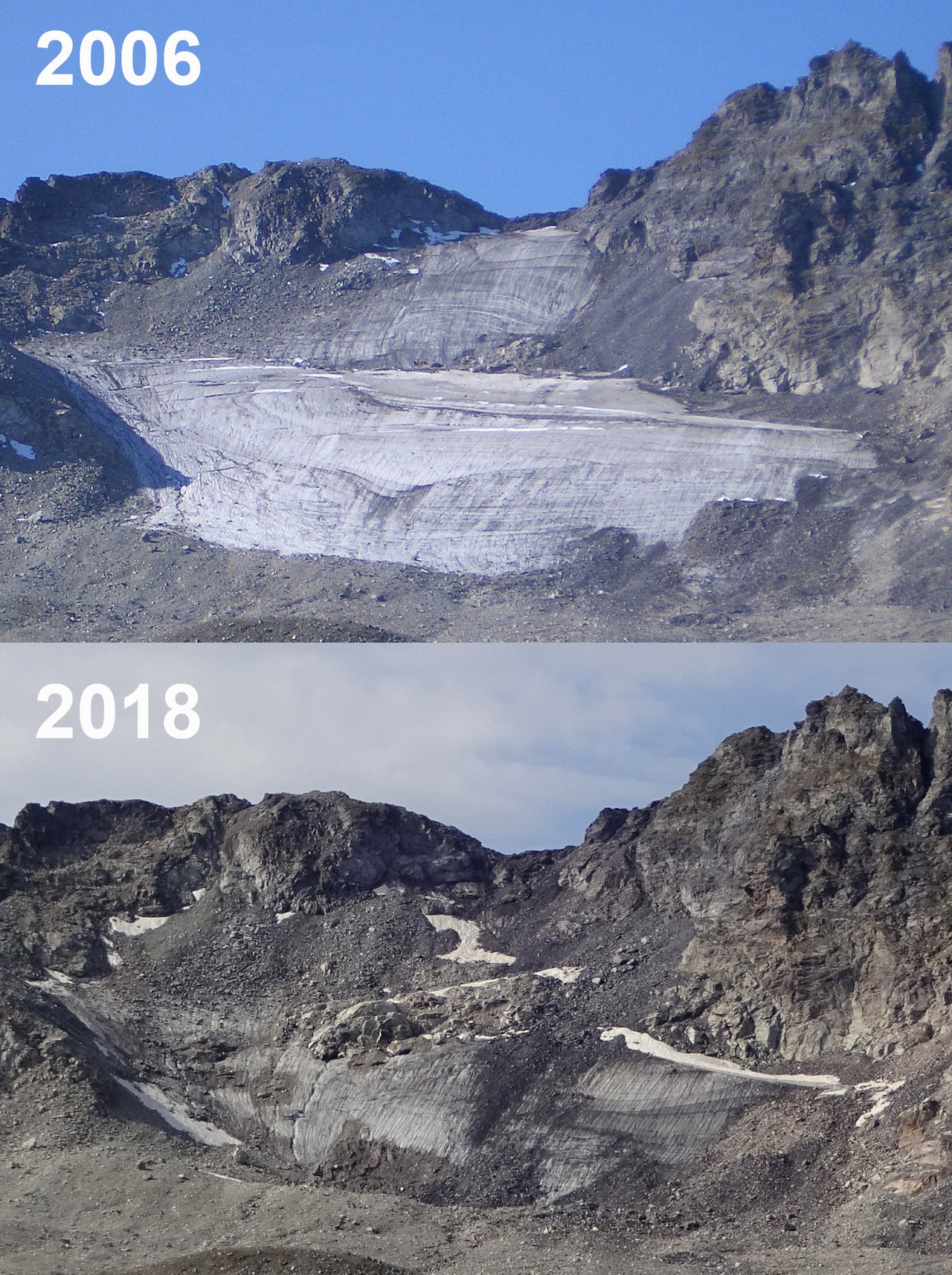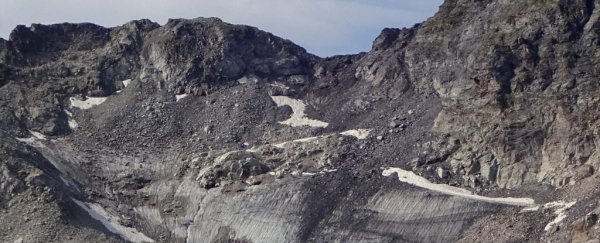For the second time in a month, the world is mourning yet another one of Europe's majestic glaciers. Once a sight to behold, scientists now say that Switzerland's Pizol glacier has all but disappeared thanks to climate change.
Since 2006, this natural wonder has lost at least 80 percent of its volume, and the few patches of white that remain are more depressing than hopeful. Together, experts say they amount to some 26,000 square metres of ice, which is less than four football fields.
"There will be some snow left, but the glacier is no more," Matthias Huss, a glacier specialist from ETH Zurich University, told CNN.
"There are several small pieces of ice lying around, but these pieces are increasingly being covered by rock debris from the mountain. But given what is left of it, we will no longer term it a glacier in scientific terms."
On Sunday, to commemorate the loss and to declare the glacier dead, some 250 people hiked up into the Alps to pay their respects. The memorial service included the laying of a wreath, and speeches by scientists and a local priest. Many of the participants were dressed in black. Some even had veils.
Climate activists hold event to mark vanishing Swiss glacier https://t.co/j57J5qoF85 #climatechange #pizol #glacier #RIPpizol #Switzerland pic.twitter.com/p6Ko98Aazp
— Denis Balibouse (@denisbalibouse) September 22, 2019
Pizol is only the second glacier to ever receive a funeral. Just a month ago, Iceland laid to rest its 700-year-old Okjökull glacier, the very first to be 'killed' by climate change.
"Ok is the first Icelandic glacier to lose its status as a glacier," its memorial plaque now reads. "In the next 200 years all our glaciers are expected to follow the same path."
The words are not hyperbole. They come directly from a recent study, published in April of this year. No matter how much we cut our greenhouse gas emissions, it suggests that from 2017 to 2050, Europe will lose 50 percent of its glacier volume.
In every single scenario, the Alps is expected to lose about 50 percent of its glacier volume by 2050.
 (M Huss/EGU)
(M Huss/EGU)
"Glaciers in the European Alps and their recent evolution are some of the clearest indicators of the ongoing changes in climate," said Daniel Farinotti, one the paper's authors, at the time.
"The future of these glaciers is indeed at risk, but there is still a possibility to limit their future losses."
Pizol and Ok are the first to go, but they won't be the last.
